Search
Remove Ads
Advertisement
Summary 
Loading AI-generated summary based on World History Encyclopedia articles ...
Search Results
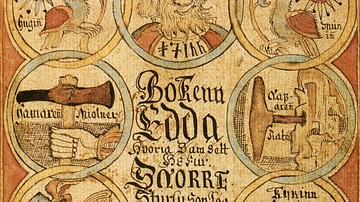
Definition
Edda
Edda is a term used to describe two Icelandic manuscripts that were copied down and compiled in the 13th century CE. Together they are the main sources of Norse mythology and skaldic poetry that relate the religion, cosmogony, and history...

Image
Prose Edda
Title page of one of the manuscripts from Snorri Sturluson's Prose Edda showing various figures of Norse mythology, 18th century CE.
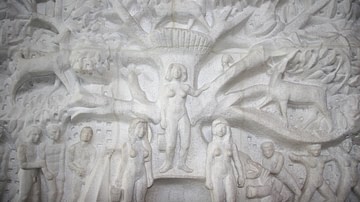
Article
Viking Prophecy: The Poem Völuspá of the Poetic Edda
The Völuspá (Old Norse: Vǫluspá) is a medieval poem of the Poetic Edda that describes how the world might have come into shape and would end according to Norse mythology. The story of about 60 stanzas is told by a seeress or völva (Old Norse...
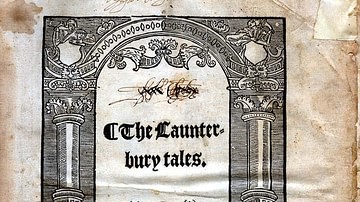
Definition
The Canterbury Tales
The Canterbury Tales (written c. 1388-1400 CE) is a medieval literary work by the poet Geoffrey Chaucer (l. c. 1343-1400 CE) comprised of 24 tales related to a number of literary genres and touching on subjects ranging from fate to God's...

Definition
Norse Mythology
Norse mythology refers to the Scandinavian mythological framework that was upheld during and around the time of the Viking Age (c. 790- c. 1100 CE). Complete with a creation myth that has the first gods slaying a giant and turning his body...
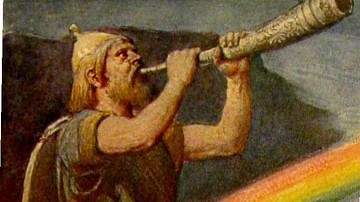
Definition
Heimdall
Heimdall is a mysterious deity of Norse mythology whose main attribute refers to guarding the realm of the gods, Asgard, from his high fortress called Himinbjörg found at the top of Bifröst, the rainbow bridge. He has the might of sea and...
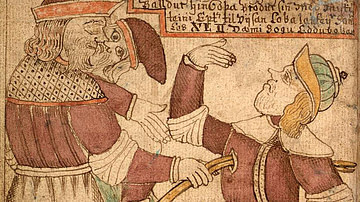
Definition
Baldr
Baldr is a god in Norse mythology associated with light, wisdom, and courage, although he is never specifically defined as the god of any of these. He is best known for his dramatic death, which heralds the coming of Ragnarök, the end of...
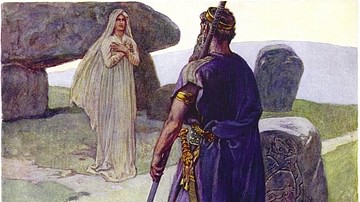
Article
Ten Norse Mythology Facts You Need to Know
The stories that make up what is known today as Norse mythology once informed the religious beliefs of the people of regions including Scandinavia and Iceland. To the Norse, the world was an enchanted place of gods, spirits, and other entities...
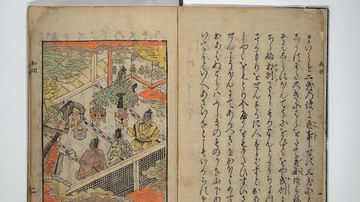
Definition
Japanese War Tales
War tales (gunki monogatari) is a genre of historical writing that developed in Japan from the Heian Period (794-1185) to the Muromachi Period (1333-1573). They form an important element in the development of the Japanese literary tradition...
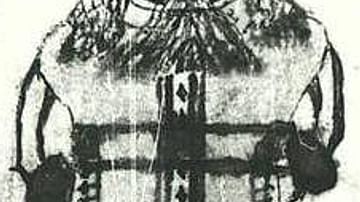
Definition
Hoenir
Hoenir or Hönir (Old Norse: Hœnir or Hønir) is a very shadowy god figure in Norse mythology, who joins the gods Loki and Odin on a couple of occasions in the old texts. He seems to have attributes of creation and prophecy, and his name might...